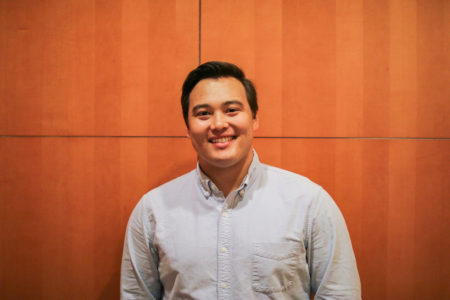By Julia Sloniewsky
sloniews@grinnell.edu
Law school admissions are notoriously competitive. Beyond the sterling qualifications one must obtain before applying, applicants also face a grueling entrance exam. Fourth-years at Grinnell considering attending law school next fall are preparing for these exams now, in hopes of taking the test as early as September and as late as January.
The three sections of the LSAT are designed to test all aspects of one’s reasoning abilities, making the three-and-a-half-hour-long exam require prep work, and lots of it.
“Even if you get a really good score or … a really bad score, [some schools] may average them … there’s no super-scoring like the SAT,” said Alex Asawa ’19. “Law schools see all of [your scores].”
Many students, including Asawa and Emily Jordan ’19, who just took the LSAT in September, take prep courses to ease their fear. The amount of studying can be daunting, so both fourth-years started taking prep courses over the summer during their internships. “[The prep courses] can easily raise your score by ten points,” Asawa said.
But how can you beat a test of logical ability? Unlike studying for the MCAT, in studying for the LSAT, “[y]ou’re really learning how to take the test,” Jordan said.
In addition to Critical Reasoning and Logical Reasoning, the LSAT contains the notorious Analytical Reasoning section, a series of obscure logical games. “It’s like, ‘if you had to order these people in such and such way’ and there are rules about how you can order them, then ‘what must be true?’” Asawa said.
While studying, one practices “diagramming things out and organizing them.” These questions require thought and planning to reach the correct answer.
According to Jordan, the bottom line is “if you practice you can improve.” This is a sentiment Asawa agrees with. “Some people just see the logic and nail everything, but most, maybe 90-95 percent don’t …It’s definitely good to get a program,” Asawa said.
Admission to law schools is not just dependent on your LSAT score, however. In addition to having a competitive GPA, one must also demonstrate interest in the legal profession. For Asawa, he believes he demonstrated his interest in the profession though having law-related internships for the past three years and participating in mock trial since high school. Jordan spent her last summer clerking for a pro-bono law firm that serves low-income residents who can’t afford an attorney.
A career in law has always been the dream for Asawa. “I’ve wanted to be a lawyer since the fifth grade,” he said. In Jordan’s case, it wasn’t until taking her first Global Development Studies course that she settled on her true calling — human-rights law. Even though she has known since the fourth grade that she wanted to be a lawyer, this course helped her realize what area of law called to her.
“I wanted to find a way to help people … [Human rights law] was it.” Her law school plans take her out of the Midwest and into the East Coast. “I definitely want to be in Washington D.C. … Georgetown [University] is my top choice.”
Asawa is not so certain. “Wherever you go to law school, you get trained to take the Bar Exam in that state. … I want to go to California, so I’m looking at schools there but I’m also looking at [law school in] Iowa,” he said.




















































